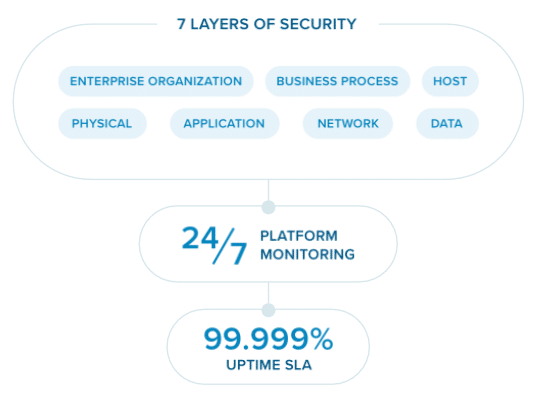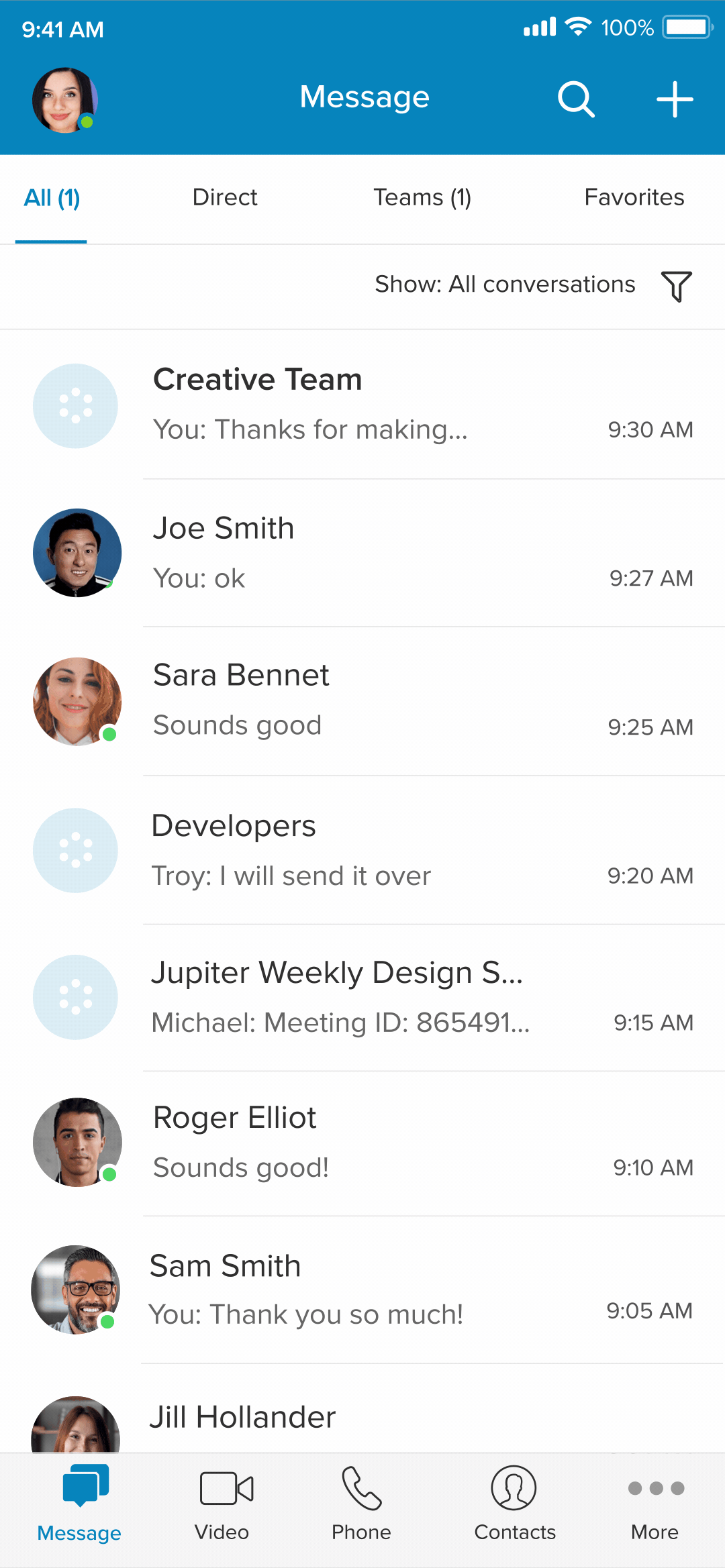There are many communications tools for small businesses, but choosing the right one for your particular business takes some thought. Some tools handle one specific function, such as email, phone, messaging, or videoconferencing. Others might include numerous functions all in one app. It’s a lot to consider.
Communications tools can cost a pretty penny, so it’s important that you get the most out of your investment. Here’s a list of what to look for when considering a new communications tool.
🔍 Are you thinking about purchasing a new communications tool and unsure how to get started? Here’s a checklist to help you pick the right one for your business.
1. Mobile-friendly
Stop feeling tied to your desk and start managing your business from anywhere. Most small businesses today have employees working on the go. So, one of the most critical features to consider is mobile friendliness.
Look to see if the product you’re considering has a dedicated mobile app that works with multiple devices, including phone, tablet, and laptop. In addition, keep an eye out for a switch feature that lets you seamlessly change from desktop to mobile (and vice versa) as you work on the go.

2. Multiple uses
If you run a small business, it’s imperative to get maximum value out of your investments. For a communications tool, that means the product you choose should have multiple uses.
In most cases, choosing a unified communications tool can save money in the long run. For example, if you’re looking for an advanced tool, you might consider one that includes phone, team messaging, videoconferencing, SMS, and integrations. Bundled tools are often a better bargain, so don’t limit yourself to a one-trick pony.
3. Ease of use
If you choose a difficult tool to use, nobody will use it. Look for a communications solution that’s intuitive so that even your most technologically-challenged employee can use it with ease.
Ease of use is also vital for your customer-facing communications solution. If customers are frustrated by the communications system they must use to contact your business, they won’t be your customers for long.
4. Reliability and security
Your communications solution should be reliable and secure at all times. After all, no one likes a dropped call or a system that only works during certain times of the day. Look for a tool that keeps you connected at all times.
Don’t settle for anything less than 24/7 multichannel support, 99.999% uptime that keeps you connected during outages and disasters, and a #1 rating by industry experts (for example, RingCentral is a leader in the 2021 Gartner® Magic Quadrant™ for UCaaS). Checking off all these boxes will save you a lot of time, money, and frustration down the road. ®
And don’t forget about security. Ensure your business is always protected by getting a tool that comes with seven layers of security and global certifications (including SOC 2, SOC 3, HITRUST, FINRA, HIPAA, C5, ISO 27017, ISO 27018, and GDPR compliance).

5. Scalability
Even though your business might be small right now, you’re likely aiming to grow. So, choose a communications tool that will grow with your business. Look for one that will allow you to add users in just seconds. As your communications needs grow, your solution should be able to expand with you at the same time.
Another related consideration to think about is will your communications tool help you grow your business? For example, will the tool help you improve your customer relationships and brand visibility? Will it provide you with robust analytics? Insights gained from analytics can help you make more informed business decisions.
6. Ongoing support
Let’s face it. You don’t have time to deal with communication issues and run your business simultaneously. Look for a communications vendor that can get your business up and running fast and offers ongoing support.
The right vendor will offer installation assistance, as well as a consultation, training, guides and documentation, webinars and tutorials, and 24/7 support by phone, chat, and email.

7. Integration with other tools
If your team uses multiple apps and tools to get work done, it’s time to simplify their experience. When choosing a communications tool, look for one that can integrate with your current business apps. For example, find out if it integrates with popular business apps like Salesforce, Microsoft 365, and Google Cloud.
The more integrated your communications tool is with your other business apps, the smoother your operational processes will be.
8. Document sharing
Sharing files and documents is a basic need for most businesses, so look for a communications tool that offers built-in document sharing features. You can also opt for integrations with file-sharing apps to streamline workflows and improve team collaboration.

9. Digital-first
The modern reality is that your customers and employees live in a digital world. They expect to work with modern tools and connect via multiple digital channels such as phone, chat, SMS, videoconferencing, email, and more.
Further, they expect to seamlessly switch between channels without losing time or relevant information. Look for a communications tool that enables multi-channel digital communications and collaboration.
How RingCentral checks all the boxes
Spoiler alert: RingCentral can do all of these things! RingCentral’s all-in-one communications platform offers:
- 250+ integrations in the RingCentral App Gallery and open APIs through the RingCentral developer portal to customize all your workflows
- 24/7 support by phone, chat, and email
- A mobile app to ensure you can work on the go
- Phone, messaging, videoconferencing, SMS, and more all in one app
- Call center capabilities
- 99.999% uptime and seven layers of security
- Dynamic end-to-end encryption (E2EE)
And, that’s not all. To help you deliver results faster with greater efficiency, RingCentral provides file-sharing capabilities that let you choose from integrated file-sharing apps such as Dropbox, OneDrive, and Google Drive.
If you’re looking for an all-in-one communications platform that will grow with your business, you’ve come to the right place. RingCentral offers a best-of-breed solution trusted by more than 350,000 small businesses.
Learn more by checking out the RingCentral for small business page.
Originally published Mar 10, 2022, updated Dec 30, 2022





